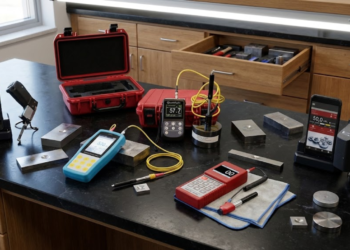Environmental conservation is a collective responsibility; students can contribute to environmental sustainability and reduce their ecological footprint. Being an eco-friendly student can be rewarding and help you better understand environmental conservation. Preserving the planet is a habit you gradually grow into; thus, you should start by making small adjustments, such as adapting eco-friendly studying habits. It’s like when you want to become good at essay writing like academic writers at payforessay.net; you start small by learning the basics, such as picking the right essay topic, researching with credible sources, and outlining an essay. After mastering the basics, you move a step further by learning things like how to choose the correct words for your paper. Let’s review some eco-friendly study habits you can adopt to promote environmental sustainability.
Use Digital Resources
Digital resources significantly contribute to environmental conservation by reducing paper consumption. It is common knowledge that papers are made from trees, which may often result in deforestation. Although paper is biodegradable and decomposes fast, the problem usually arises when large volumes of paper material are dumped in landfills. Therefore, digital resources such as e-books should be opted for to promote environmental conservation. Also, you can use several note-taking applications to reduce the need for paper and ink. The environmental impact of book production and disposal can be controlled by investing in these digital resources, including having a computer for your projects.
Use Sustainable Materials
Environmental conservation has become a household topic, and most people are now interested in protecting their surroundings. Several production companies are tapping into such interests by manufacturing sustainable items. You can find a wide range of sustainable items from the fashion industry to the education field. Therefore, you need to be more conscious when purchasing items; you will need to ensure they are environmentally friendly in school.
You can choose recycled paper products for your printouts and notebooks if you need a writing book. Besides, you can purchase your stationery from companies known for recycling materials or using sustainably sourced wood. Before buying your school items, it is best to conduct more sustainability research to ensure you identify companies that practice sustainable production.
Create a Sustainable Study Environment
Using plants and other nature-friendly items, you can actualize environmental conservation through your study space. Adding plants to your space will also improve air quality and boost your productivity since they often have a certain level of calmness. While you may be drawn to decorating your space with other additional items, it is essential to take a minimalist approach to ensure your space is not cluttered with items that might end up in landfills later. When choosing décor pieces for your study space, ensure they are biodegradable and can be recycled.
Practice Mindful Consumption
Being mindful of your consumption helps control waste generation, pollution, and habitat destruction. Therefore, before purchasing any item you need for your schoolwork, ensure you understand its production process and environmental impact. The best way to ensure you are mindful of your consumption is by purchasing second-hand products, from clothes to textbooks, to ensure these items are not disposed of in the environment, as they might be non-biodegradable. When buying items such as your backpack, you can opt for ones made from environmentally friendly products or repurposed fabric.
Additionally, instead of buying new books every semester, you can share them with your friends or borrow them from the library if the e-book version is unavailable. You should also practice eco-friendly habits such as printing smart, whereby if you need printouts for your class notes, you can print them on both sides of the paper to avoid using a lot of paper.
Recycle
Recycling is among the primary methods of environment conservation. You should first take time to understand the concept of recycling and how to implement it in your surroundings. Also, learn more about recyclable materials such as paper, glass, specific plastic, and much more. Once you understand the aspects of recycling, it will be much easier to implement it. The best way to adopt a recycling habit is by setting up different bins for waste materials in your house or class. Label the containers to avoid confusion.
A recycling system will ensure that non-biodegradable waste does not end up in landfills. You can also start recycling programs in your school if there is none, but if there is an ongoing program, you can join and contribute towards it. Most importantly, before recycling, you should first think of reusing some reusable items. To promote reusing, ensure that the items you buy are reusable, such as plastic tins and water bottles, instead of buying single-use products.
Use Eco-Friendly Transportation
Using sustainable means of transport to school is an excellent way to reduce your carbon footprint and contribute to environmental conservation. If you have the option of driving, taking the bus, or cycling to school, you should choose the most sustainable mode of transport: cycling. If your school is near your residence, you can walk instead of catching the bus or driving to school. Carpooling is also an excellent way to reduce your carbon footprint since it reduces the number of vehicles on the road. If you have friends with a car, you can split the fuel costs and use one car for school.
If you use your vehicle to school on some days, ensure it is well maintained to reduce emissions. Also, if you have group discussions to attend, you can encourage remote activities by holding virtual meetings and digital collaborations to reduce the need for commuting. Some institutions often provide transportation options that run on cleaner energy sources to contribute to environmental preservation. If your school offers such options, you can use them instead of driving to school or using public transport.
Final Thoughts
Anyone can implement ecological sustainability, including students. Your actions may seem small, but they contribute significantly to environmental conservation. Environmental preservation is not just about jumping onto trends; you have to be intentional about it and strive to understand the different aspects of environmental sustainability and the role you can play toward achieving a greener and better planet.




![7 Best POS Software in the UK [2026 Edition]](https://todaynews.co.uk/wp-content/uploads/2026/02/7-Best-POS-Software-in-the-UK-2026-Edition-360x180.png)







































































